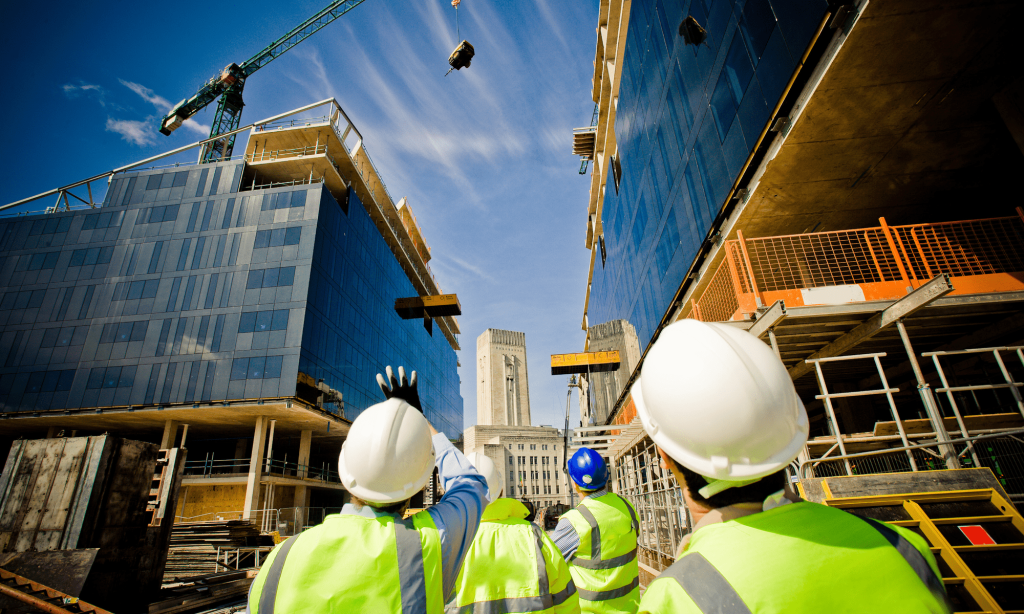Building and Construction Courses in Australia: An In-depth Guide
Australia’s building and construction industry is a dynamic and critical sector, shaping the nation’s infrastructure and providing significant employment opportunities. The country’s demand for skilled professionals in this field is growing, driven by population growth, urbanization, and government investments in infrastructure. Whether you’re seeking to become a skilled tradesperson, project manager, or construction engineer, Australia offers a broad range of courses tailored to meet the needs of the building and construction industry.
This article delves into the various courses available, ranging from vocational certificates to advanced degrees, the career opportunities they lead to, and how these qualifications can contribute to pathways for permanent residency (PR) in Australia.
If you need assistance with this profession such as EOI lodgement, skill assessment, PR application lodgement or would like to study courses related to Civil Engineering Draftsperson, we have all colleges and universities all over Australia. Contact us for more info and guidance.
Email: info@immiedu.com.au
Contact: 04 2626 3536.

1. Overview of the Building and Construction Industry in Australia
The construction industry is one of the largest contributors to the Australian economy, representing about 9% of GDP and employing over a million people. The sector is diverse, covering residential, commercial, industrial, and civil construction. With ongoing investments in infrastructure and housing, the demand for skilled professionals remains strong across all levels of the industry.
The Australian government supports the construction sector through policies that encourage sustainable building practices, energy efficiency, and stringent safety regulations. As the industry evolves with the adoption of new technologies, sustainable practices, and larger projects, there is an increasing need for highly trained professionals in roles ranging from construction managers to skilled tradespeople.
2. Types of Building and Construction Courses
Building and construction courses in Australia are designed to cater to various skill levels, from entry-level qualifications to advanced degrees in management and civil engineering. Here’s a breakdown of the main types of courses available:
A. Certificate Courses
Certificate-level courses are ideal for those looking to gain hands-on skills in a specific trade. These qualifications are typically completed through Technical and Further Education (TAFE) institutions or Registered Training Organisations (RTOs). They are ideal for students wanting to enter the workforce quickly or start an apprenticeship.
Common Certificate Courses:
- Certificate III in Carpentry
- Provides the technical skills required to work as a carpenter, focusing on timber framing, roofing, and furniture construction.
- Certificate III in Bricklaying/Blocklaying
- Focuses on skills such as laying bricks and blocks, reading construction plans, and constructing walls and other structures.
- Certificate III in Plumbing
- Teaches the installation and maintenance of plumbing systems, including water, gas, drainage, and roofing.
- Certificate IV in Building and Construction (Building)
- Prepares students to become site supervisors or builders, covering topics like planning, safety regulations, project management, and estimation of costs.
These certificate programs are highly practical, ensuring students are job-ready upon completion. They often include on-site training or apprenticeships, providing direct experience in the construction environment.
B. Diploma Courses
Diplomas offer a more comprehensive study of building and construction, focusing on management, design, and planning. These qualifications are suited for those looking to take on supervisory or administrative roles in the industry.
Popular Diploma Courses:
- Diploma of Building and Construction (Building)
- This course focuses on site management, project planning, cost control, and contract administration, providing skills to become a licensed builder or construction manager.
- Diploma of Building Design
- Trains students in architectural drafting, design principles, and building code regulations. It covers computer-aided design (CAD) software and sustainable building practices, preparing graduates for roles in building design and architecture.
- Diploma of Project Management (Construction)
- Ideal for those seeking a career in construction project management. It covers project planning, risk management, leadership, and the supervision of construction teams.
Diploma courses often lead to mid-level management roles, such as site supervisor, project manager, or building estimator. The programs balance theoretical knowledge with practical application, helping students understand the complexities of construction projects.
C. Advanced Diploma Courses
Advanced diploma courses are tailored for individuals aiming to take on senior roles in the construction sector or specialize in fields like civil construction design or advanced project management.
Advanced Diploma Options:
- Advanced Diploma of Building and Construction (Management)
- Aimed at professionals looking to move into high-level management roles. It covers complex construction project management, financial planning, leadership, and managing large teams.
- Advanced Diploma of Civil Construction Design
- This course focuses on the design and management of civil infrastructure projects such as roads, bridges, and sewer systems. It prepares students for technical and leadership roles in civil construction firms.
These programs are ideal for those who have prior experience in the industry and wish to progress into leadership positions within construction companies or take on large-scale projects.
D. Bachelor’s Degree Courses
A bachelor’s degree in building and construction provides an in-depth education, combining theory, practical skills, and often an internship component. Degrees are more comprehensive, making them suitable for students aspiring to higher-level management, engineering, or specialized design roles.
Popular Bachelor’s Programs:
- Bachelor of Construction Management
- Prepares students for roles such as construction manager, project manager, or building consultant. The course covers construction law, contract management, cost estimation, and sustainable construction practices.
- Bachelor of Building Surveying
- Focuses on ensuring that construction projects comply with Australian building codes and regulations. Surveyors play a critical role in the construction process, ensuring safety, compliance, and quality.
- Bachelor of Civil Engineering (Construction Major)
- A civil engineering degree with a focus on construction provides the technical skills required to design, plan, and oversee infrastructure projects such as roads, bridges, and airports. This program integrates engineering principles with hands-on construction practices.
Bachelor’s degrees offer strong career prospects and are often the minimum requirement for higher-level roles in construction firms, government agencies, or large engineering companies.
E. Master’s Degree Courses
Master’s degrees are for professionals seeking advanced expertise in construction management, engineering, or project leadership. These courses are suitable for those already in the industry who want to specialize in areas such as sustainable building, urban planning, or large-scale project management.
Examples of Master’s Programs:
- Master of Construction Management
- This course prepares students for leadership roles within construction firms, focusing on advanced project management, strategic planning, and sustainable construction.
- Master of Project Management (Construction Focus)
- Provides advanced skills in managing large construction projects, covering project lifecycle, risk management, and financial control. It is designed for professionals looking to manage complex, multi-million-dollar projects.
- Master of Urban Planning and Design
- Integrates construction with urban development, teaching students to plan and design urban spaces. It’s ideal for professionals working on infrastructure projects in rapidly growing cities.
A master’s degree can significantly enhance career prospects, providing graduates with the expertise to lead major projects or work in specialized roles within the construction and engineering sectors.
3. Career Opportunities in Building and Construction

Building and construction qualifications open up numerous career opportunities in Australia, ranging from skilled trades to senior management roles. Some potential career paths include:
- Builder: Responsible for overseeing the construction of residential, commercial, or industrial buildings.
- Site Supervisor: Manages the daily operations of a construction site, ensuring work is completed safely and efficiently.
- Construction Project Manager: Oversees large construction projects from start to finish, managing budgets, teams, and timelines.
- Architectural Draftsperson: Specializes in creating building plans and designs using computer-aided design software.
- Civil Engineer: Works on large infrastructure projects like roads, bridges, and water systems.
- Building Surveyor: Ensures buildings comply with legal regulations and safety standards.
- Construction Estimator: Calculates the costs of materials, labor, and equipment needed for a construction project.
4. Pathway to Permanent Residency (PR)
Australia’s construction industry is listed as a high-demand field for skilled migration. Many occupations within the building and construction sector are included on the Skilled Occupation List (SOL) or Medium and Long-term Strategic Skills List (MLTSSL). Completing a course in a trade or profession on these lists can increase your chances of obtaining a work visa and eventually applying for permanent residency (PR).
Occupations like carpenters, plumbers, bricklayers, electricians, and construction managers are often in demand across Australia, particularly in regional areas where skills shortages are more pronounced.
Conclusion
The building and construction in Australia is vast, offering diverse career opportunities across all levels. Whether you’re starting as a tradesperson or aiming for a senior management position, the right course can provide the skills and qualifications needed to succeed in this growing sector. With the added benefit of potential pathways to permanent residency, pursuing a career in building and construction in Australia is a promising choice for both domestic and international students.
From certificates to master’s degrees, Australian educational institutions offer a comprehensive range of programs to suit your career aspirations in construction, helping you become part of the industry that builds Australia’s future.
For more resources: https://immi.homeaffairs.gov.au/
If you need assistance with this profession such as EOI lodgement, skill assessment, PR application lodgement or would like to study courses related to Civil Engineering Draftsperson, we have all colleges and universities all over Australia. Contact us for more info and guidance.
Email: info@immiedu.com.au
Contact: 04 2626 3536.
